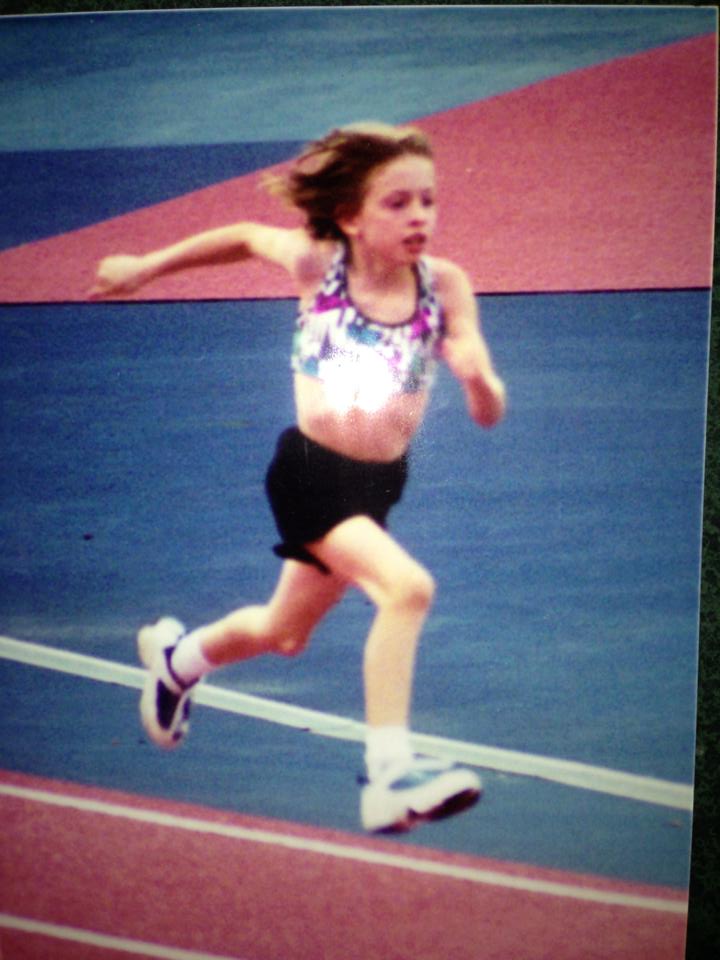Mistreatment and Body-Shaming in Coaching
I recently returned from the empowering Strong Runner Chicks (SRC) retreat in the wake of an NCAA coach allegedly body-shaming his athletes—something that is not the sole “cause” of eating disorders, but it sure can trigger them.
I went to the SRC retreat knowing that many of us runners had very similar stories with eating disorders, body image, amenorrhea, and injuries. And it broke my heart to hear about the comments made by coaches that triggered the destructive relationships with food in many of these young women.
It breaks my heart, because many of the runners were still dealing with the physical and emotional consequences of under-fueling. Some voiced their struggle with understanding how to eat again as we talked about intuitive eating. Others shared their lost hopes and dreams and asked how to make a comeback in a sport they love.

These athletes hadn’t been protected by their coaches or the athletic administration. Instead, we had to come together from all across the country to empower each other. We had to ready ourselves to empower the rest of those who were enduring mental abuse.
We came together to openly discuss these issues in a running community that rarely has.
Eating Disorder Education
The running world has been silently hurting for years—hurting under the lack of eating disorder education, prevention, and training. It has been hurting under coaches making harmful comments. This, I find, is often related to the lack of education surrounding the topic. Coaches may believe they are just helping an athlete to adjust their diet and weight, and thus performances. But, as Dr. Paula Quatromoni says, without proper direction and professionals to intervene, it’s a dangerous way to try to manage weight, nutrition, and performance.
In a population of young men and women who are at high risk for developing eating disorders, and enough research to show how to avoid triggering athletes and fostering a healthy atmosphere in which to coach, it is troubling for any coach to comment on an athlete’s body in such negative ways.
“Tough Love”
Anyone defending a coach for body-shaming often seems to think that body shaming really won’t take athletes down such a difficult path, or that only “weak” athletes will feel abused. This is a reflection of a society that thinks giving “tough love” to people about their weight will help them to change for the better. It is also putting blame on the victim.
Body shaming in athletes and anyone in society has been shown to trigger life-threatening eating disorders and/or a lifelong destructive relationship with food and their bodies. This should not be tolerated in sports. There are much better, healthier ways to go about weight gain or loss. Instead of body-shaming, coaches can refer athletes to a sports dietitian assuming there might be any weight to adjust (yes, as I acknowledge it can be a small part of performance).

Mental Abuse Has Devastating Consequences
I can’t help but think of the small similarities between this case and the Larry Nassar situation (while understanding that sexual abuse has its own intense problems/differences). I’m reflecting on how some coaches defend coaches who are accused of body-shaming because he/she was “nice” and “charismatic.” It’s as if these qualities alone prove he/she should never feel the “devastating effects” of losing the job.
However, there are a few devastating effects a coach may have on his or her athletes: a life of sacrificing anything (including their health) to run faster; struggling with constant hunger and intense cravings; suffering from low energy; difficulty concentrating; and eventually multiple stress fractures, amenorrhea, binge eating, bulimia, lost friendships, family strains, and hundreds of hours of therapy and treatment, if not eventually death.
Time for Change
It is my hope that we stand up and take back our voices.
It is my hope that athletes who value their times and performances more than their own health will seek treatment, hopefully with the prompting of a coach and the athletic staff. I want them to understand how a balance of physical and mental health will lead to a lifelong, healthy running career.
It is my hope that athletes, coaches, and athletic staff who don’t know much about eating disorders and sports will tap into the many resources to educate themselves and others. We can put prevention practices into place so that we aren’t making the same mistakes over and over again.
It is never my intention to think of any coach as “evil.” It does sadden me to see coaches with so much potential and strength in other areas are unaware of the devastating effects of some of their words and actions. By addressing these issues and better understanding them, coaches who do have the knowledge to help their athletes become stronger and faster beyond weight can keep their positions.
And they can have a positive influence over their athletes for years to come.








